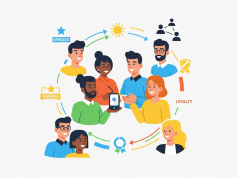When people need advice on what to buy, where to go, or who to trust, they often ask someone they know. It could be a friend, a family member, or a colleague. This simple act of sharing honest experiences is what we call word-of-mouth. It’s not a new concept, but in the digital world full of advertisements, word-of-mouth is proving to be far more reliable.
Why is that the case? Why do people believe personal recommendations over polished ads backed by big budgets? Let’s dive deeper into the psychology and impact behind this trust.
The Core of Trust: Human Connection
At its heart, word-of-mouth is personal. It comes from someone we already know, someone who has no reason to lie. There’s no motive to sell or promote—just a genuine experience shared in conversation. That alone makes the message more believable.
No Sales Agenda
People know that advertisements are made to sell. Whether it’s on TV, online, or a billboard, ads are designed to persuade. This sales intent immediately makes consumers skeptical. On the other hand, when a friend tells you a product worked well for them, you’re more likely to believe it. That’s because there’s no reason for them to exaggerate or lie. They’re just sharing what they found useful.
Built-In Credibility
Trust is often built over time. We listen to our close circle because we already know their tastes, habits, and values. If your cousin recommends a restaurant, you trust her because you know she loves good food and isn’t easily impressed. That’s credibility no ad can match.
Real Stories Beat Brand Messages
Advertisements often use actors, scripts, and marketing language. Even when ads look relatable, consumers know they’re still carefully crafted messages. But word-of-mouth is real. It’s unfiltered. It’s based on actual experiences.
Authenticity Wins
Let’s say two people talk about a product:
-
One is reading a company’s ad copy.
-
The other is telling a friend how that product solved their problem.
Which one seems more honest? The second one, of course. That’s because authenticity comes through naturally when someone shares their own experience.
Social Proof Has Power
People like to follow what others are doing. This psychological behavior is known as social proof. If everyone around you is talking positively about a product or service, it creates a strong sense of trust. You feel safer making the same choice.
Familiarity Builds Comfort
If you hear the same recommendation from multiple people, it reinforces the idea that it’s a good choice. It’s not about just believing one person. It’s about seeing a consistent pattern. That pattern makes it feel less like a gamble and more like a smart decision.
Online Reviews Are a Digital Extension of Word-of-Mouth
With the rise of the internet, word-of-mouth hasn’t disappeared—it has evolved. People now leave reviews on platforms like Google, Amazon, and Yelp. These reviews are just public versions of personal recommendations.
Peer Reviews Influence Decisions
Research shows that people read online reviews before making purchases. In fact, many trust these reviews as much as recommendations from friends. What’s interesting is that even when reviews are written by strangers, they still feel more genuine than advertisements.
Balanced Opinions Matter
Unlike ads that only show the good side, real reviews include both positives and negatives. That balance helps people make better-informed decisions. When users see a mix of opinions, they trust the source more.
Ads Try Hard, and That’s the Problem
Most ads are flashy, filled with promises, and designed to grab attention. But this high-effort approach can backfire. The more a brand tries to convince you, the more you start to question their motives.
Trust Can’t Be Bought
Big companies often spend millions on campaigns, but if people don’t believe the message, the money is wasted. Authentic trust can’t be purchased—it has to be earned. That’s why even small businesses with strong customer referrals often perform better than larger ones with expensive ads.
Emotional Resonance: Word-of-Mouth Feels Personal
When someone shares a product that helped them or made their life easier, that message comes with emotion. Maybe it solved a real problem or brought joy. That emotional connection stays with the listener.
Ads Rarely Hit That Mark
Even the most emotional ad still comes from a business goal. Word-of-mouth, however, carries human emotion in its rawest form. That’s why it tends to leave a lasting impact.
The Rise of Influencer Culture
While traditional ads struggle, influencer marketing is growing rapidly. Why? Because it’s a modern form of word-of-mouth. Followers see influencers as relatable individuals, not big brands.
But Authenticity Still Matters
Even influencer marketing works best when it feels honest. If followers sense that a recommendation is fake or only for money, they tune out. The same rules of trust still apply: be real, be relatable, and offer true value.
Why Trust Matters Most
In a noisy world full of messages, people crave honesty. That’s why word-of-mouth is more trusted than ads. It’s not about how loud your message is; it’s about how true it feels. Whether it’s a simple conversation or a quick review online, real voices speak louder than any marketing campaign.
If you’re building a brand or trying to gain loyal customers, focus less on ads and more on experiences. Deliver value. Let your customers become your voice. When they speak for you, others will listen—and more importantly, they’ll believe.
Given how much people trust word-of-mouth, it makes sense to learn how to promote referrals using WhatsApp or SMS.








